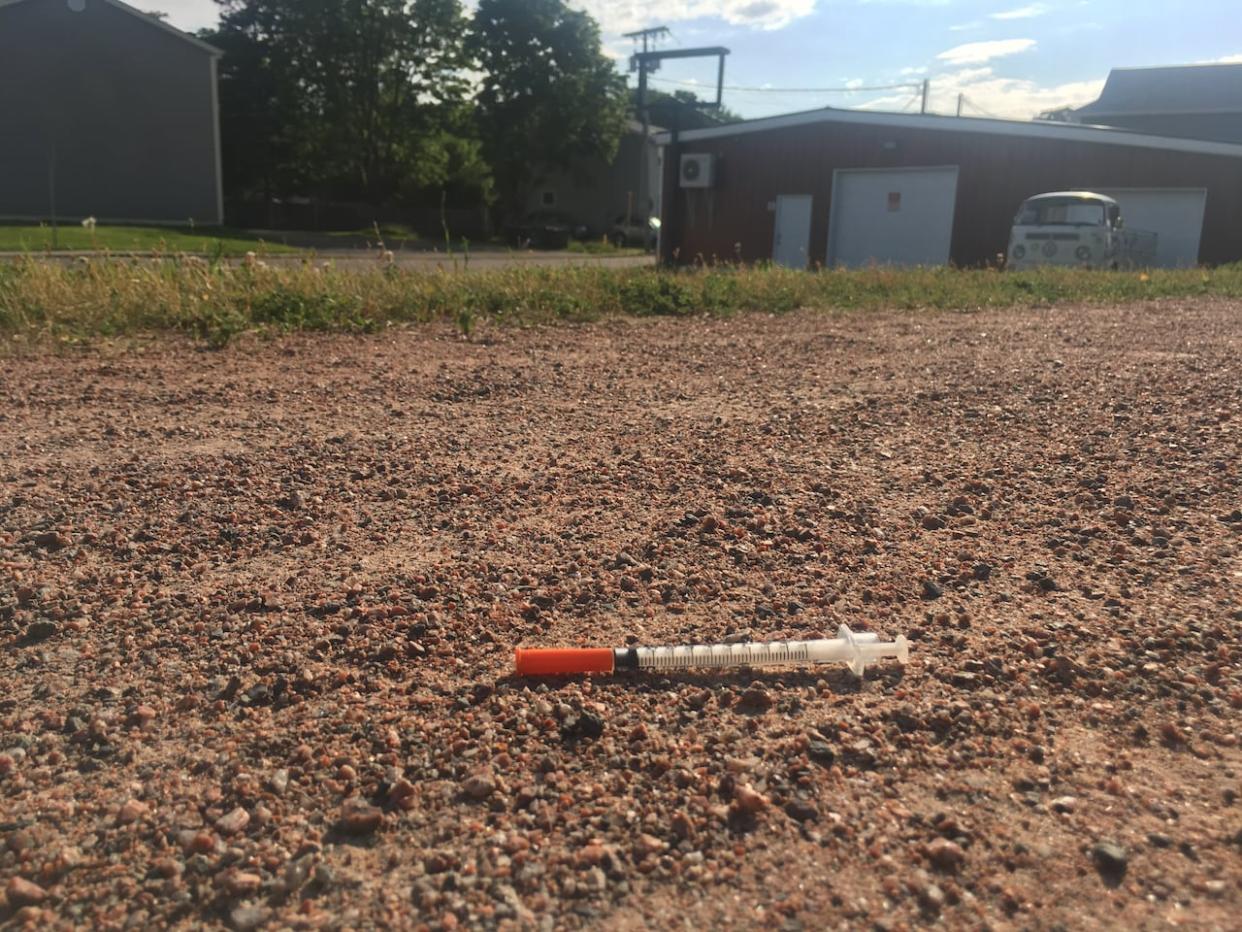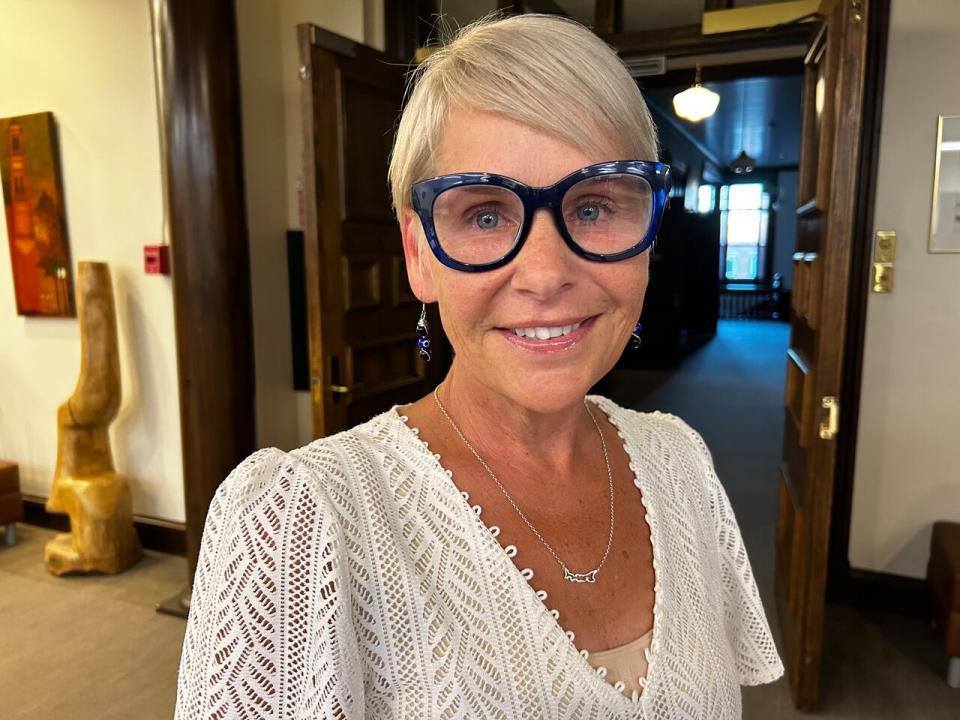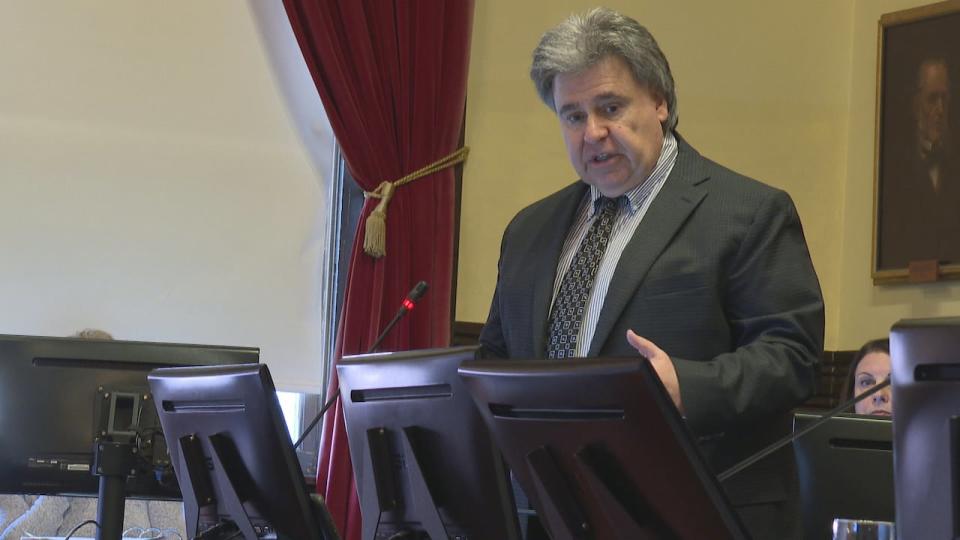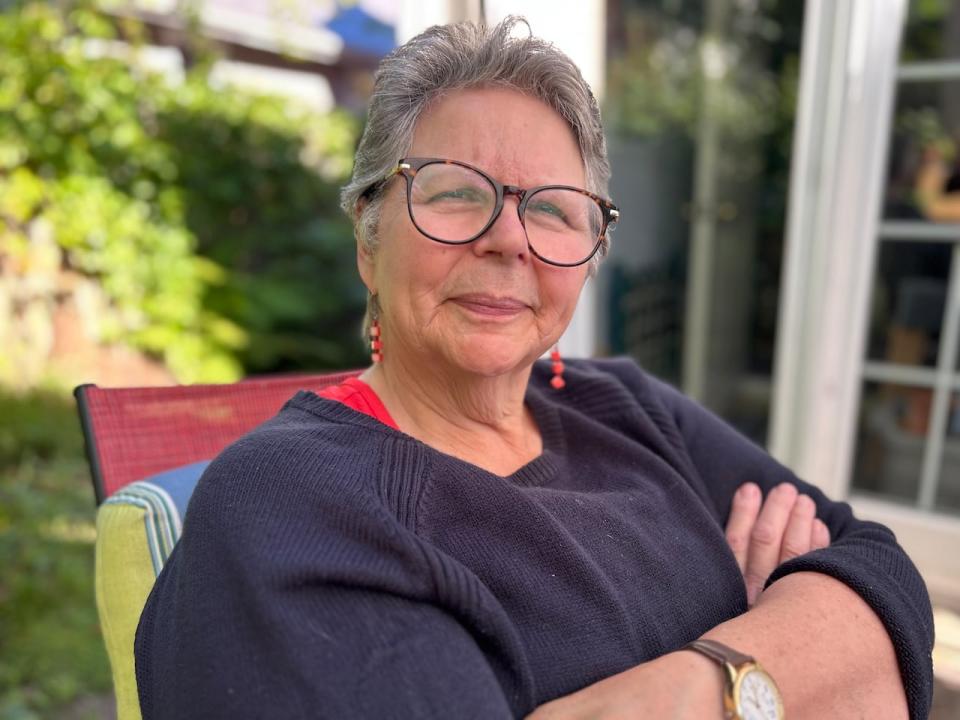Break-ins, public drug use — Charlottetown residents looking for city to act

Terry Avery is staying in a cottage in North Lake, P.E.I., and worried, she says, about returning to her Charlottetown home because drug use in the area is so bad.
"We've had people going through our garbage cans. We are told they are looking for things they can sell," Avery told CBC News..
"I've had two licence plates stolen off the car and the truck. We had our van broken into, windows smashed, things stolen from it."
This is a homeless issue created by a lot of issues, not just drugs. — Regena Russell
Avery's concerns about returning to her home of 35 years, on a side street just off of Euston Street in Charlottetown, come as Charlottetown council presses police to develop a plan for dealing with crime in the city.
"I watched people doing drugs. I watched a guy doing a line of cocaine off the back of a car next to my house," said Avery.
"The police were on our street three times in a week not long ago. And one of those calls a neighbour made because someone was doing drugs on my doorstep."
Avery is hoping something comes out of the city's new plan.
"It's really hard when you see your neighborhood going downhill," she said.
'Many people are feeling unsafe'
At a special meeting of Charlottetown city council on Monday night, council members voted unanimously for Charlottetown Police to come up with a "community plan with key performance indicators that address illicit drug use and related illegal behaviour."
The motion was put forward by Deputy Mayor Alanna Jankov.

'We've been all hearing from the community, Charlottetown as a whole. Many people are feeling unsafe,' says Charlottetown Deputy Mayor Alanna Jankov. (Tony Davis/CBC)
"We've been all hearing from the community, Charlottetown as a whole. Many people are feeling unsafe," Jankov said.
"There are a lot of break-ins — cars, people's backyard. People are feeling unsafe in the parks, people are feeling unsafe on the sidewalks, their bicycles are being stolen. There seems to be a real shift in what is happening in our community over the last few years."
Jankov wants police to look at what other municipalities in Canada are doing — what was tried and what failed, she said.
"Do our bylaws need to be stricter? You know, as a city what can we do to support our protective services?" Jankov said.
"It is really important to get a clear picture of all that information and share it with the public, give the public an opportunity to speak about it then go from there with an action plan."
Jankov doesn't know when an action plan could begin, she said.
'Much bigger problem' than the Outreach Centre
Coun. Mitchell Tweel raised issues about the Community Outreach Centre on Euston Street.
People in the area are dealing with increased drug use, property damage, thefts and threats since the centre moved to the former Charlottetown Curling Club in June of 2021, he said.

Coun. Mitchell Tweel talked about the Community Outreach Centre on Euston Street at the special council meeting. (Laura Meader/CBC)
Some of the clients who use the outreach centre are experiencing homelessness, drug addiction or both.
Regena Russell lives close to the outreach centre. While she hasn't witnessed illicit drug use, she hears about issues from her neighbours quite often, she said.
"I don't think you can talk about drug use in the community without looking at the homeless issue. It's almost impossible to address one without addressing the other. That isn't to say the homeless are all drug users because that's just not accurate," Russell said.
"I've heard people talk about seeing people doing injections and that has happened quite often in this particular community more since the outreach centre has appeared."

'The homeless issue is an issue that has to be addressed in a very multifaceted way. There has to be people who understand that if some of them do have drug issues they need to be dealt with. With therapy and outreach,' says Regena Russell. (Tony Davis/CBC)
A few weeks ago Russell visited the outreach centre, she said.
"I understood then that this is a much bigger problem than just the outreach centre. This is a homeless issue created by a lot of issues, not just drugs. It was the pandemic. It was a whole lot of things."
Russell wants to see a program where people work one on one with the homeless population and ask them one question.
"What is it going to take to get you off the street or to get you into a home or into a room? And we need to have the rooms. We have to have the spaces for people to live."
Russell thinks more needs to be done from all levels of government and the 50 beds at Park Street Emergency Shelter are not enough, she said.
Charlottetown Police are hosting a public meeting at Birchwood Intermediate School next Tuesday to discuss crime and safety concerns in the city.


